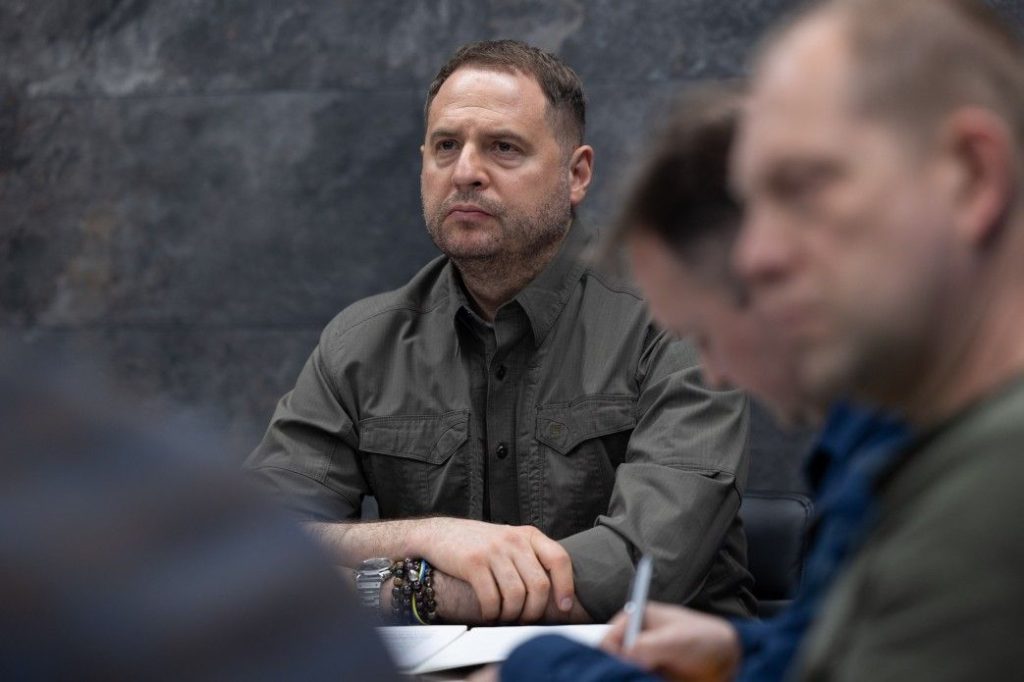A Ukrainian team led by Head of the Presidential Office Andriy Yermak recently held negotiations with the U.S. regarding a bilateral security agreement. Over 30 countries, including the U.K., Germany, France, Canada, and others, have joined the Group of Seven (G7) Joint Declaration of Support for Ukraine. Ukraine is also preparing bilateral agreements with several other countries, including the U.S. During the talks with the U.S., progress was made in agreeing on the text of the document, with a goal of finalizing the agreement this month. The G7 members presented a plan for long-term security commitments for Ukraine at the NATO summit in Vilnius, with the aim of providing support against Russian aggression and aiding in post-war reconstruction.
In early 2024, Ukraine signed seven security agreements with allied countries for the next decade, in addition to ongoing negotiations for 10 more bilateral deals. These agreements are crucial in guaranteeing Ukraine’s security while also paving the way for potential NATO membership. The agreements cover various aspects such as military support, intelligence sharing, and training, with the goal of strengthening Ukraine’s defense capabilities. The support from these countries will play a significant role in deterring Russian aggression and maintaining stability in the region. These new security agreements are seen as instrumental in Ukraine’s path to victory against Russian aggression and in achieving lasting security in the region.
The security agreements with allied countries not only provide military support but also encompass sanctions, financial aid, and post-war reconstruction efforts. These comprehensive agreements aim to bolster Ukraine’s ability to resist Russian aggression and provide a strong deterrent against any future hostile actions from Russia. The long-term commitments from G7 members and other allied countries demonstrate a collective effort to support Ukraine’s sovereignty and territorial integrity. By forging these new security agreements, Ukraine is taking proactive steps to ensure its security and protect its interests in the face of ongoing challenges and threats from Russia.
President Zelensky’s administration has been actively working to strengthen Ukraine’s defense capabilities through partnerships with allied countries. The negotiation of bilateral security agreements and the signing of long-term commitments with various nations highlight Ukraine’s commitment to enhancing its security infrastructure and resilience. These agreements not only demonstrate international support for Ukraine but also serve as a strategic move to counter Russian aggression and maintain stability in the region. By engaging in these security agreements, Ukraine is positioning itself as a key player in regional security dynamics and strengthening its relationships with global allies for mutual security interests.
The ongoing negotiations and progress in finalizing the bilateral security agreement with the U.S. indicate a strong commitment to enhancing Ukraine’s security posture and defense capabilities. By collaborating with international partners, Ukraine is able to access critical resources, intelligence-sharing mechanisms, and military support to counter external threats effectively. These agreements also serve as a deterrent against potential aggression and play a crucial role in maintaining peace and stability in the region. The support from G7 members and other allied countries underscores the importance of collective security efforts in safeguarding Ukraine’s sovereignty and territorial integrity.
Overall, the signing of bilateral security agreements with allied countries and ongoing negotiations for additional partnerships are crucial steps in strengthening Ukraine’s defense capabilities and resilience against external threats. By forging these new partnerships, Ukraine is solidifying its position in the international community and demonstrating its commitment to safeguarding its sovereignty. The long-term security commitments from G7 members and other nations represent a significant boost in Ukraine’s defense capabilities and serve as a strong deterrent against Russian aggression. These agreements not only provide military support but also encompass broader aspects such as intelligence-sharing, training, and post-war reconstruction, underscoring the comprehensive nature of the security arrangements.


